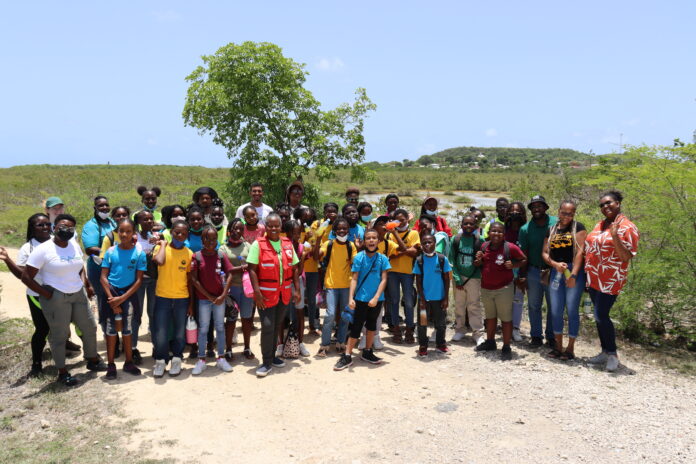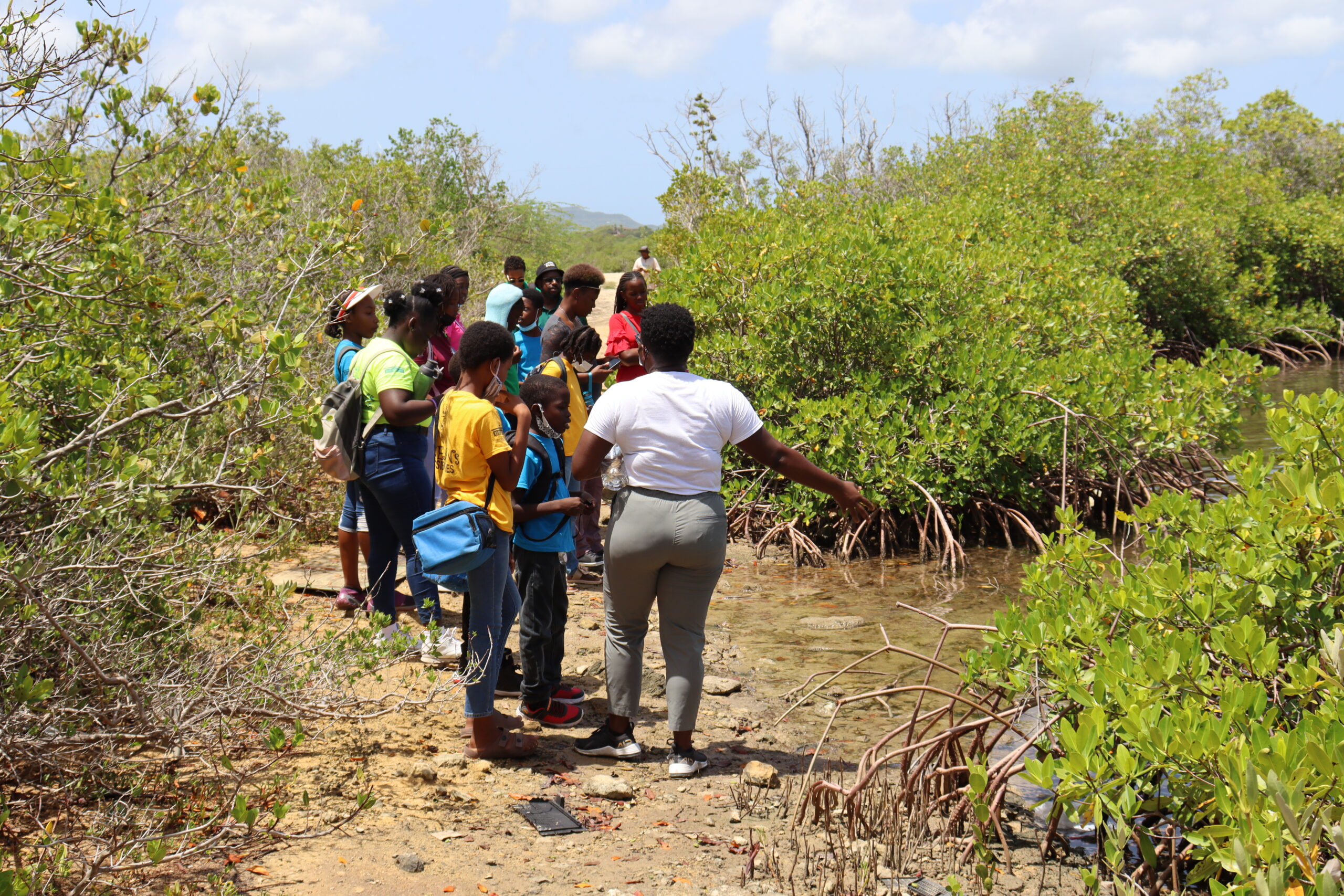

Local organisations came together this week to celebrate International Day for the Conservation of Mangrove Ecosystems, marked annually on July 26.
The day was designated by UNESCO in 2015 to raise awareness of the integral role of mangrove ecosystems as unique, special and vulnerable – and to promote solutions for their conservation, sustainable management and utility.
The Department of the Blue Economy, the Department of Environment, and the Environmental Awareness Group (EAG) joined forces to host a field trip for children attending the National Public Library Summer Camp.
Youngsters were informed about the various species of mangroves, as well as the rich biodiversity that such ecosystems support. Children had the opportunity to see firsthand local mangrove ecosystems, and they were also provided with guidance on how they can play a role in protecting mangroves for generations to come.
Students were also given learning and activity material developed by the Department of Environment to improve their knowledge about their local environment.
Mangrove ecosystems play an important part in almost all aspects of life both worldwide and in Antigua and Barbuda. They help to reduce damage caused by storms and hurricanes along the coastlines, protecting communities from damage from storm surges and coastal erosion.
Mangrove ecosystems play a role in the economy too as critical habitat for the marine life that local fisherfolk depend on, thus contributing to food security for the twin island nation.
They also increasingly serve as hubs for ecotourism by providing an interesting and natural landscape for visitors and locals alike to appreciate.
In addition, mangrove ecosystems serve as one of the most important bastions against climate change, as they store the carbon that contributes to climate change in their extensive root system, functioning as a carbon sink to lock away these deadly greenhouse gases.
